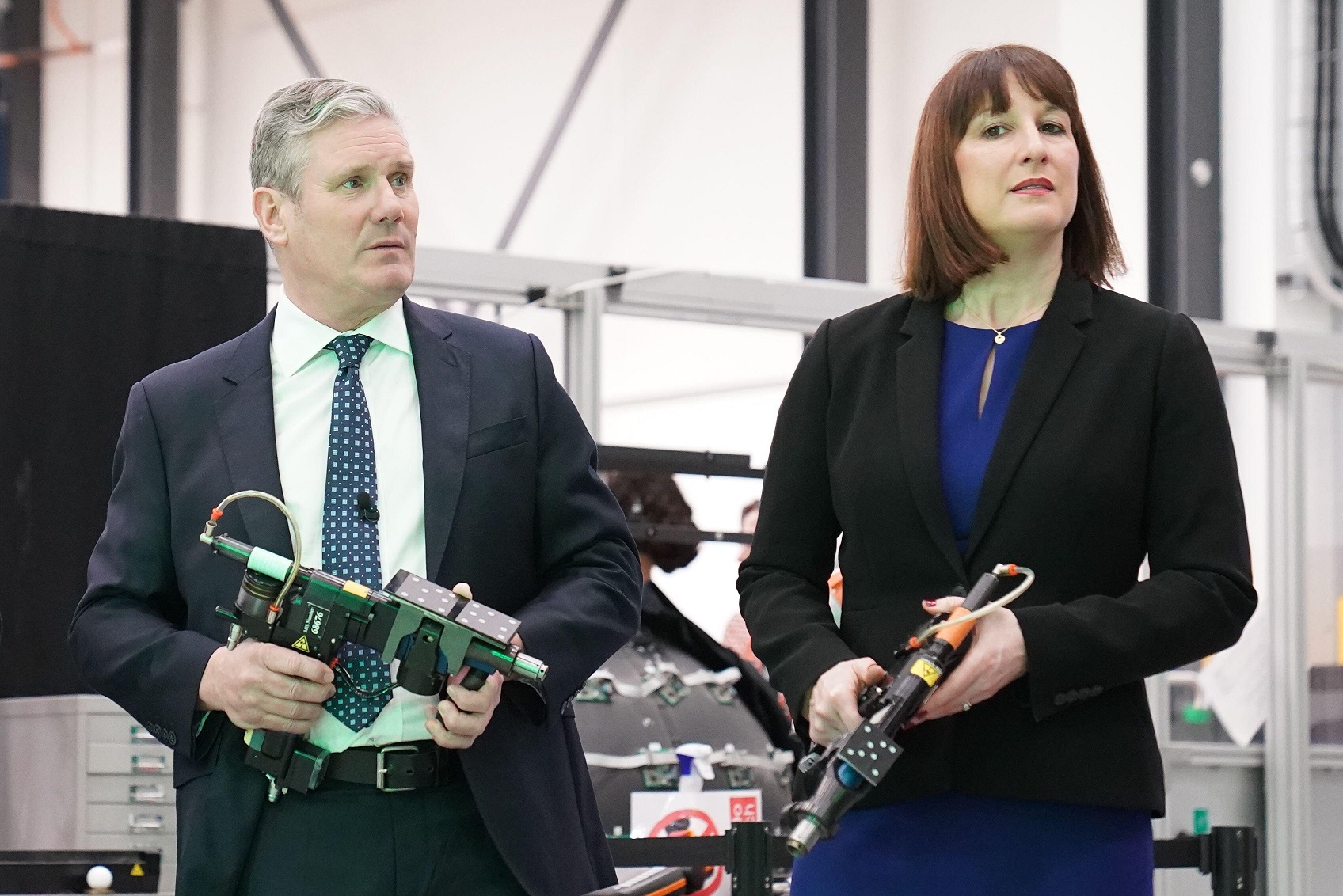Keir Starmer Vows To End "Sticking Plaster Politics" In Fresh Plea For Change Of Government
5 min read
Labour leader Keir Starmer has pledged a “decade of renewal” and an end to “sticking plaster politics” if his party is elected in his first speech of 2023.
Speaking from Queen Elizabeth Park in Stratford, east London, where Prime Minister Rishi Sunak offered his vision for the country yesterday afternoon, Starmer set out Labour's alternate proposal.
He opened his speech on Thursday morning saying that 2023 "marks a new chapter for Britain" and that "we must look forward with hope".
"Our task for 2023 is not to rest on our laurels. We need to push forward and rise to the moment," he continued.
"We can be a bold reforming government that show not just what the Tories have done to Britain, but the Britain that Labour can build."
He said a Labour government would deliver a "fairer, greener, more dynamic country with an economy that works for everyone, not just those at the top".
Starmer set out his vision for "a new approach to the power of government" which will "push us on to a better future and a decade of national renewal".
He said a Labour government would be committed to 100 per cent clean power generation by 2030, made possible by the creation of a Great British Energy company – "a new publicly owned company that will take this opportunity and turn it into good, secure, well-paid British jobs".
The Labour leader also said his government would implement a new "Take Back Control" bill in its first King's Speech, which "will deliver on the demand for a new Britain".
It would ensure "a huge power shift out of Westminster" by devolving new powers "over employment support, transport, energy, climate change, housing, culture, childcare provision and how councils run their finances".
Sunak's speech on Wednesday set out the five major pledges he wanted the public to judge his premiership on. These pledges include halving inflation, growing the economy, reducing national debt, cutting NHS waiting lists and stopping migrant boats crossing the Channel, although many drew on existing government policy.
Sunak also promised his government would not “offer you false hope or quick fixes”, and that the public “should hold me to account for delivering” his five main pledges.
But he claimed that change "requires sacrifice and hard work", admitting that "it's a big risk for a politician to say that" but that the "stakes are too high and the rewards too great".
He took a more cautious tone than Starmer, adding that "change is hard, it takes time, but it is possible."
 (Alamy)
(Alamy)
In his speech on Thursday, Starmer took aim at Sunak's speech, saying he was "still in denial about how we got here" and "still too weak to challenge the vested interests in his party which hold Britain back".
"You saw it yesterday from the PM. Commentary without solution. More promises, more platitudes. No ambition to take us forward," he continued.
"No sense of what the country needs. Thirteen years of nothing but sticking plaster politics."
He criticised Sunak for blaming the war in Ukraine for being responsible for the current crisis, claiming that the conflict didn't fail to advance home insulation, onshore wind or nuclear energy.
"The Tory government did that," he added.
Starmer said the government's solution for the energy crisis was another example of "sticking plaster politics", calling its energy support scheme "an expensive last minute fix papering over cracks in our energy security".
He also said that "the Westminster system is part of the problem" as it had a "short-term mindset".
"Sometimes I hear talk about a 'huge day in Westminster' but all that’s happened is someone has passionately described a problem and then that’s it," he said.
"Nothing has changed, the circus moves on. Rinse and repeat."
He continued that this was emblematic of "sticking plaster politics" as it "sometimes offers short term relief but the long term care eludes us".
Labour currently has a strong lead over the Conservatives in the polls, with recent polling by Redfield and Wilton putting them 20 points ahead with less than two years until the next election.
Starmer’s party currently has 47 per cent support, while Sunak’s is lagging behind with just 27 per cent.
The poll did find, however, that Sunak is perceived as a better prime minister, with 38 per cent saying he is best for the job compared to 37 per cent for Starmer.
Green Party MP Caroline Lucus prasied Starmer for focusing in his speech on "short-term sticking plaster policies", but criticised him for treating the issue of the "devastating impact of [Brexit]" as an "absurd taboo".
She added that claiming to "make Brexit work" was "simply dishonest" and that his failure to recognise its impact meant his "economic analysis... continues to fall short".
The SNP said that "Keir Starmer's Labour simply follows the Tories" and that "Scotland simply can’t afford a pale imitation of a Tory government".
"The only way to escape the broken Westminster system is with independence," the party said in a statement.
